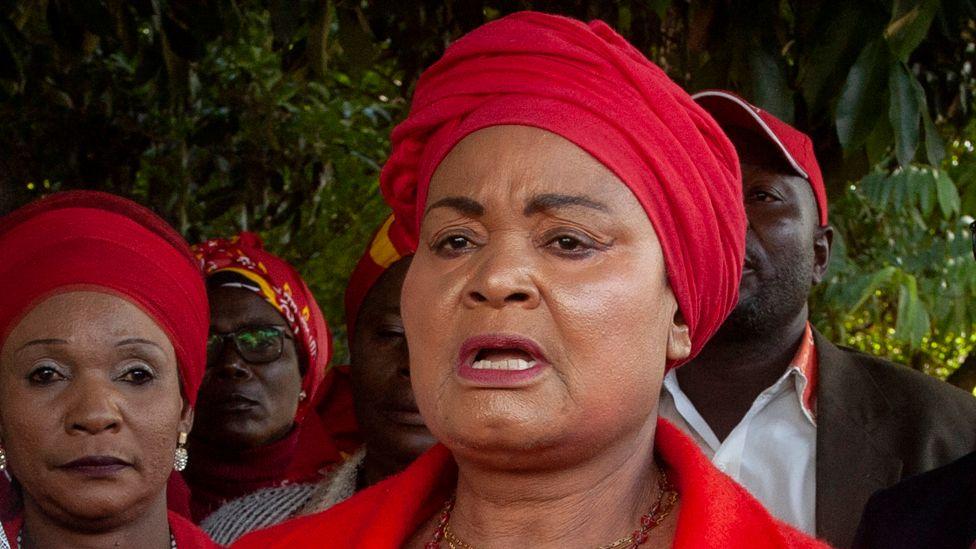In a significant political development in Malawi, Patricia Kaliati, a prominent figure in the opposition and secretary general of the UTM party, faces grave charges of conspiring to assassinate President Lazarus Chakwera. Kaliati was detained last week on suspicions of “conspiring with others to commit a serious offence,” a situation that has raised eyebrows across the political landscape of the country. When she appeared in court in Malawi’s capital, Lilongwe, she remained silent, although her legal representative defended her by asserting that she maintains her innocence. The nature of the alleged conspiracy remains largely undisclosed, leading to widespread speculation and claims from various opposition members that the charges are fueled by political motivations.
As news of the allegations broke, UTM supporters gathered outside the courtroom, expressing their discontent through songs critical of the government. The gathering underscored the political tensions in the country as they symbolized the party’s solidarity and opposition against the current regime. Meanwhile, in the courtroom, reports indicated that Kaliati is believed to have two accomplices involved in the alleged assassination plot, although they have not been apprehended and are said to be on the run. The unfolding situation has ignited a fierce debate regarding the intentions behind the charges, with many activists viewing this as a tactic to weaken opposition parties ahead of the upcoming presidential elections.
Initially, state prosecutors sought to hold Kaliati in custody for an extended period as investigations proceeded. However, following a magistrate’s review, she was granted bail, a decision that reflects the intricate balance of law and political pressures in Malawi. The police have assured the public that their actions adhere to legal protocols and emphasized that Kaliati’s rights would be safeguarded during the process. This situation highlights the often contentious intersection between politics and law enforcement in Malawi, raising questions about the fairness of the judicial process in politically charged cases.
The backdrop to these charges is the recent withdrawal of the UTM party from the government in June, following the tragic death of its leader, Saulos Chilima, in a military aircraft crash. Chilima was serving as vice president at the time of his death, and his sudden passing left a significant void in party leadership. Kaliati’s decision to position herself as a candidate for the party’s leadership suggests her ambition to challenge President Chakwera in the forthcoming presidential elections, a move that would elevate her political profile amidst ongoing turmoil.
Before venturing into the political arena, Kaliati was a primary school teacher, gaining a reputation for her direct and forthright communication style. Her ability to connect with the electorate’s concerns, coupled with her strong personality, has made her a notable figure in Malawian politics. As the political landscape continues to shift, with tensions between the ruling party and opposition growing, Kaliati’s potential candidacy could influence the dynamics leading up to the elections.
The situation surrounding Kaliati’s charge is emblematic of the broader political climate in Malawi, where opposition voices often find themselves at odds with those in power. The accusations against her not only reflect personal legal challenges but also represent a critical episode in the ongoing struggle for political power and equity in the nation. As investigations continue, the implications of her case may reverberate beyond the courtrooms, potentially shaping the electoral contest and the future of political engagement in Malawi.

